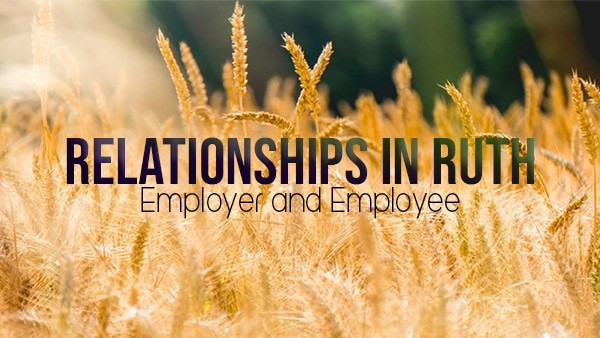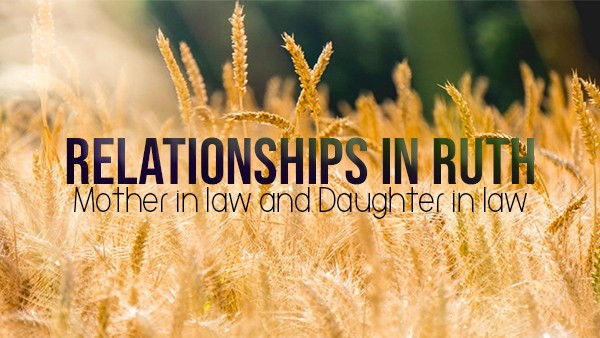– Br. Koshy Mathew (Borivali Assembly, 4th July, 2018)Passage of ReferenceRuth 2:4-16, Ephe :6:5-9, Titus 2:9-10, 1 Tim 6:1 Interpersonal relationship is one of the keys to success in life. It is predominantly how your …

Below you'll find a list of all posts that have been categorized as “Languages”

– Br. Koshy Mathew (Borivali Assembly, 4th July, 2018)Passage of ReferenceRuth 2:4-16, Ephe :6:5-9, Titus 2:9-10, 1 Tim 6:1 Interpersonal relationship is one of the keys to success in life. It is predominantly how your …
An important & encouraging message on being a true and genuine disciple of Lord Jesus Christ.

– Br. Koshy Mathew (Borivali Assembly, 6th June 2018)Passage of ReferenceRuth 1:1-14 Interpersonal relationship is one of the keys to success in life. It is predominantly how your relationship is with God, with your family, …
– Br. Varghese Chacko (Assembly Bible Classes, 29th April 2018.)Relationship with ‘Peers’ takes a whole new meaning when an individual enters Teen-age. Peers often replace Parents for all practical purposes. Along with it comes a …
“Relationship with ‘Teens and Parents’ are more or less like ‘Wife and Mother-in-laws’, but with one big difference. Most of the Teen start appreciating their Parents later in life!! What then is the fuzz? Why a Teen find himself at loggerhead with his Parents? Here in this Video Varghese Chacko gives a perspective that is woven through Psychological reasoning and Spiritual basis… A ‘Must Watch’ for all Teens and their Parents.

The church can consist of people who are hurting, distressed and of dire need of help. It can very well consist of people who are actively involved in the gathering, but who also are come to the verge of destruction. In the wise words of Solomon, it can consist of a person who cries that he has come to atmost ruin and is lost in the middle of the gathering.
This tragedy cannot be overlooked. It calls for whole hearted repentance in the church. This message stresses on the importance of repentance in the church.

Paul in this passage begins his concluding arguments to the superiority of the gospel over everything of the Old Testament. The objective, firm and pointed discourse on the gospel which began from chapter 1 aptly ends here by delving into the security of Salvation. What is the guarantee that God will see through the new work he has begun and succeed? To answer this question, Paul brings three vital truths- namely being the prayer of the Spirit, glorification of the Saints and the love of the Son.After having established the surety of Salvation, the pertinent question we believers will have to answer is – how shall we respond to such a teaching? Can we allow complacency and laziness slip-in, given that our souls are secured?

Paul after having explained the depravity of carnal man now explains the glorious truth about the Holy Spirit. It is the coming of the Holy Spirit that changes everything about our old sinful life. Holy Spirit enables us to call God as Father. Without the Spirit, there would be no holiness possible. The Spirit of God also gives us true assurance of our salvation.But despite being a child of God, sufferings in life are inevitable. Groanings, sufferings are an integral part of Christian life which will eventually lead to Glorification of the Saints. A child of God groans because of tribulations, because of the decadent nature and also because he/she longs for the presence of God. Ultimately God is the heritage and exceedingly great reward of His Children.

The Gospel of Jesus Christ demands no human efforts but only faith to be saved. When a sinner believes on the Lord Jesus Christ, the sinner is declared righteous and no more held accountable for sins committed. Righteousness is not earned but transferred from Christ to the sinner.Though this judicial transaction makes a sinner fit to inherit eternal life, does it also give one the liberty to commit sin? How is sanctification and holiness achieved? Paul in this passage emphasizes the fact that just like justification could not be attained by efforts, so also any amount of human efforts cannot guarantee sanctification. We are in the flesh and are incapable of any good. Yet God brings in a new dynamics to play where the Spirit of His own Son, resides in us to bring about a new and transformed life. It is through the Spirit God that brings holiness in the life of His children, which the law of old testament was weak to do so.

A Christian has been freed from the law of the old testament. But does this freedom mean a freedom to sin? If we are not under the law, does it mean we are lawless?Paul in this passage challenges the notion that a Christian can live in sin since there is no law to keep. He asserts that a believer has no grounds to live a life of sin. The law could not guarantee holiness. But Jesus liberated us from the law and has done a new work in our lives to ensure holiness. Jesus gives us newness of Life through faith in Him. He provides us with grace to live this ‘new life’, that is marked by holiness and not sin.